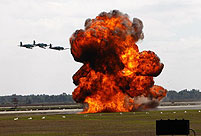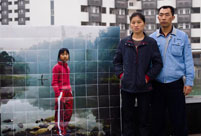NANNING, Oct. 28 (Xinhua) -- Calls are growing from the Chinese mainland and Taiwan for more political dialogue.
"With economic cooperation entering new stage, political issues are inevitable," said Pan Shyi-tarng, professor at the Graduate Institute of China Studies in Taiwan's Tamkang University. "It's impossible to discuss the economy without discussing politics."
In two decades of world economic integration, evolution of regional economies, and better cross-Strait relations, mutual investment has grown substantially. People on the both sides have noticed a change in tone of dialogue since the 18th National Congress of the Communist Party of China last November.
Total trade between the two sides was around 169 billion U.S. dollars in 2012, up almost 6 percent. In only the first nine months of 2013, that figure has become 149 billion dollars, a 23 percent increment.
Ching-Sheng Chin, secretary-general of Taiwan's People First Party, sees economic issues and political issues as inseparable, and expects a peace agreement to be signed soon. "That will be a milestone for mainland-Taiwan affairs," he said at the 9th Cross-Strait Economic, Trade and Culture Forum that concluded on Sunday in south China's city of Nanning.
At a meeting with Taiwanese politician Vincent Siew earlier this month in Bali, President Xi Jinping emphasized his readiness for political consultation under the one China framework. Taiwan's leader Ma Ying-jeou has also stressed that cross-Strait ties are not relations between two countries.
Xi believes that long-running cross-Strait political disputes will eventually be resolved, though the process may be slow. "We cannot hand these problems down from generation to generation," he said.
Xi's opinion was echoed by Chin. "If we can realize a common wish in our generation, why should we leave it to the next?"
Economic cooperation between the mainland and Taiwan remains superficial, according to Yin Cunyi, deputy director of the Institute of Taiwan Studies of Tsinghua University.
"Cooperation should be about more than just current industry transfers and equipment purchases," Yin said, adding that there will be no breakthrough until there is political dialogue. Almost all issues that can be discussed have been on the negotiation table at some stage, but 80 percent of cooperation agreements are about the economy.
"It's time to focus on politics," Yin said, suggesting people-to-people dialogue between unofficial think tanks developing into official talks, breaking the political ice.
In mid-October, the non-governmental Cross-Strait Peace Forum made proposals on political relations, including meetings between leaders and military exchange.
Tsai Chih-hong, an advisor to the island's Straits Exchange Foundation (SEF), believes political divergence could be eliminated by comprehensive dialogue.
At the APEC conference in Bali, chief of Taiwan affairs on the mainland, Zhang Zhijun, met his island counterpart Wang Yu-chi.Their informal meeting may be a prelude to bigger and better things.
The two authorities on cross-Strait affairs, the SEF and the mainland's Association of Relations across the Taiwan Strait, are both setting up offices on each other's side. The opening ceremonies for these offices may be used to launch a formal meeting.
Fan Liqing, spokeswoman with the State Council Taiwan Affairs Office, has said that the two sides should arrange meetings between their leaders independently, rather than piggy-backing on international occasions. She was responding to a question about whether Ma Ying-jeou should attend the informal economic leaders' meeting of the Asia-Pacific Economic Cooperation (APEC) next year in Beijing and meet with Xi.
Should the two leaders meet at that conference, Pan Shyi-tarng believes political dialogue and relations as a whole will be lifted to a new level.
 Annual airshow kicks off in Houston
Annual airshow kicks off in Houston U.S. Navy Carrier Strike Group stages military exercises
U.S. Navy Carrier Strike Group stages military exercises Volkswagen showcases new energy vehicles in Beijing
Volkswagen showcases new energy vehicles in Beijing  Different eye catching shows at housing fairs in China
Different eye catching shows at housing fairs in China Special family portraits call attention to left-behind children
Special family portraits call attention to left-behind children Migrant children’s pain and joy in city
Migrant children’s pain and joy in city Lingerie show dazzles Wuhan Motor Show 2013
Lingerie show dazzles Wuhan Motor Show 2013  Running in fun customs at Beijing Int'l Marathon
Running in fun customs at Beijing Int'l Marathon  Weekly Sports Photos
Weekly Sports Photos Unveil PLA air force base
Unveil PLA air force base  World has never been dark-- a blind kid’s life in Tibet
World has never been dark-- a blind kid’s life in Tibet Oriental education or western education?
Oriental education or western education? China in autumn: Kingdom of red and golden
China in autumn: Kingdom of red and golden Pet costume competition
Pet costume competition Chinese screen goddesses from Beijing Film Academy
Chinese screen goddesses from Beijing Film Academy Day|Week|Month